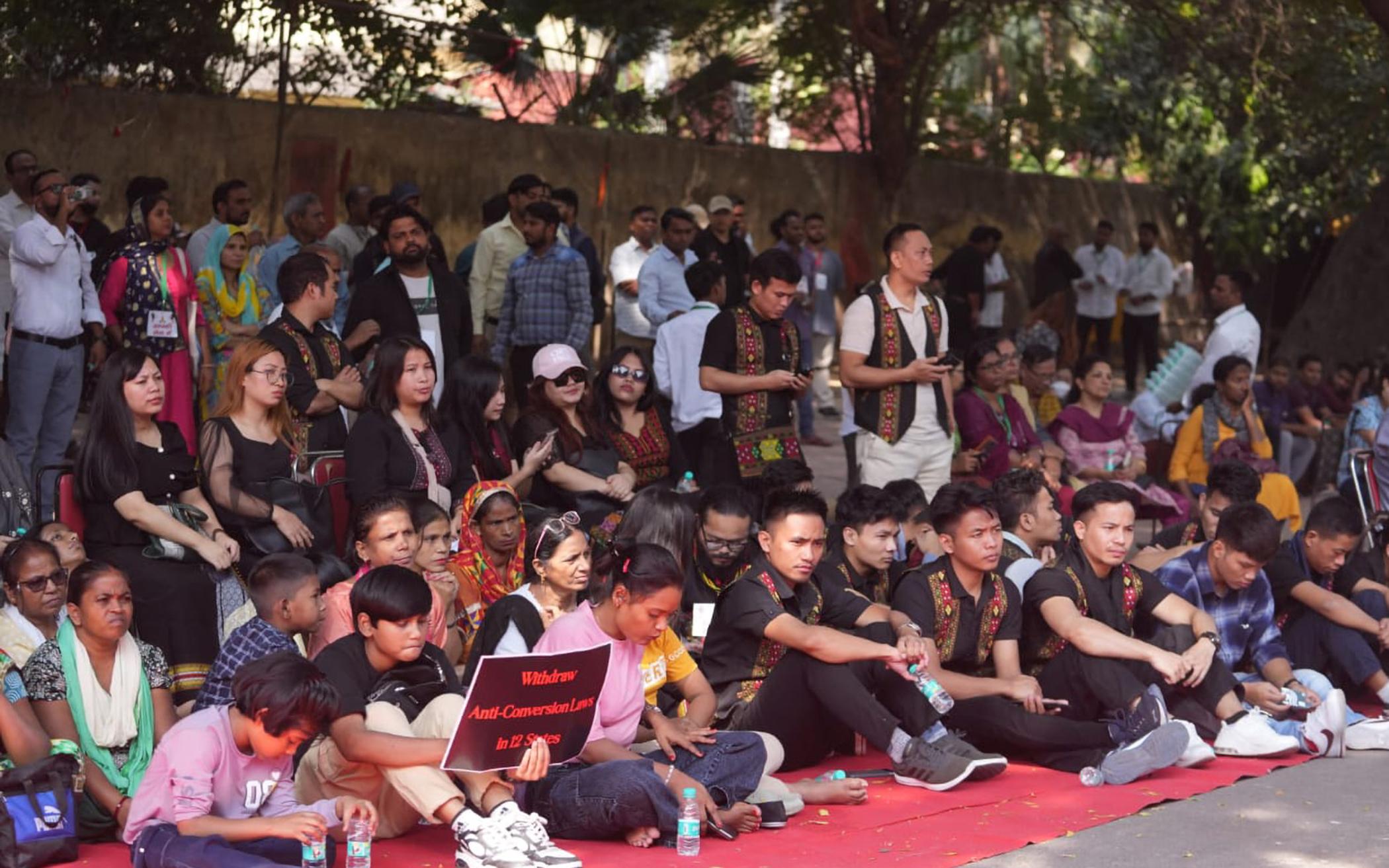As I Was Saying is a forum for a variety of perspectives to foster faith-related conversations among our readers with the goal of mutual learning, even in disagreement. Apart from articles written by editorial staff, these perspectives do not necessarily reflect the views of The Banner. The Banner has a subscription to republish articles from Religion News Service. This commentary by Asif Mahmood was published May 16 on religionnews.com. Although The Banner normally publishes authors who share our Christian faith, we are making an exception due to the significance of this topic to us.
(RNS) — While our national discourse rightfully condemns Islamophobia and antisemitism, the systematic persecution of Christians around the world receives only a fraction of our collective outrage. This silence isn’t just a diplomatic oversight—it betrays the very principle that protects all faiths, including my own.
Over 365 million Christians, or 1-in-7 Christians globally, endure high levels of discrimination and violence, according to reporting by World Relief and Open Doors US. As a commissioner with the United States Commission on International Religious Freedom, I’ve personally witnessed the anguish of Christians whose churches were burned in India, whose children were kidnapped in Pakistan, whose existence is criminalized under Taliban rule.
Their testimonies haunt me, not just as a human rights advocate, but as a person of faith who understands that religious freedom is indivisible.
When I knelt in prayer facing Mecca this morning, I did so freely and without fear. This simple act—a cornerstone of my faith as a Muslim American—is a freedom denied to millions of Christians around the world. In North Korea, owning a Bible can be a death sentence. In China, facial recognition cameras monitor officially sanctioned churches, while underground congregations face raids, demolitions and mass arrests. The Chinese Communist Party’s campaign to “sinicize” religion has torn crosses from church rooftops and banned religious education for minors.
In Pakistan, Christians like Asia Bibi have languished in prison over dubious blasphemy charges. Christian girls face the added horror of abduction, forced conversion and coerced marriage—often with impunity. In Egypt, Coptic Christians—descendants of one of Christianity’s oldest communities—endure discriminatory laws and violent attacks. In Afghanistan, since the Taliban’s return to power, the tiny Christian population, mostly converts from Islam, has either fled or gone underground. Many who sought refuge in the United States now face deportation back to potential imprisonment, torture or death under apostasy laws.
In two of America’s key allies, India and Nigeria, the plight of Christians is particularly alarming. In India, rising Hindu nationalism fuels mob violence, church burnings and targeted harassment, often going unpunished. Anti-conversion laws criminalize peaceful religious activity, further suppressing the Christian community. In Nigeria, Africa’s most populous country, Christians in the Middle Belt and northern regions live under constant threat from Boko Haram, Islamic State West Africa Province and armed Fulani militants. Churches are torched, pastors assassinated and entire communities erased, often while authorities turn a blind eye. Christians killed in Nigeria make up nearly 90% of such deaths worldwide, according to 2023 Open Doors records. Both nations demonstrate how political extremism and religious intolerance, coupled with state indifference, can leave Christian minorities besieged.
The global rise of authoritarianism and religious nationalism fuels intolerance. Silence becomes complicity, and ignoring the suffering of any faith invites the persecution of all. Just as we condemn the Uyghurs’ plight, we must defend Christians silenced and hunted for their beliefs.
I still remember the words of a Nigerian pastor whose church was bombed three times: “They can burn our buildings, but they cannot burn our faith.” His defiance reflects the courage I’ve seen from secret churches in Tehran to congregations rebuilding in Mosul.
As a Muslim, I stand with persecuted Christians. We must transcend the divisions that plague our world. What threatens the cross today could endanger the crescent tomorrow. Those who silence church bells could one day silence the muezzin’s call to prayer.
History won’t just remember the persecutors; it will remember who looked away. I’ve met the victims. I’ve heard their stories, and I refuse to stay silent. Religious freedom requires our vigilance. Will we be bystanders to religious repression, or will we act decisively for those whose faith puts their lives at risk?
To every Christian targeted for their faith: We see you. We stand with you. We will fight for your right to worship, live and believe without fear—not someday, but now.
About the Authors
Religion News Service is an independent, nonprofit and award-winning source of global news on religion, spirituality, culture and ethics.
Dr. Asif Mahmood is a member of the U.S. Commission on International Religious Freedom. He practices pulmonology and internal medicine in Southern California, and resides in Pasadena. The views expressed in this commentary do not necessarily reflect those of Religion News Service or of the U.S. Commission on International Religious Freedom.

